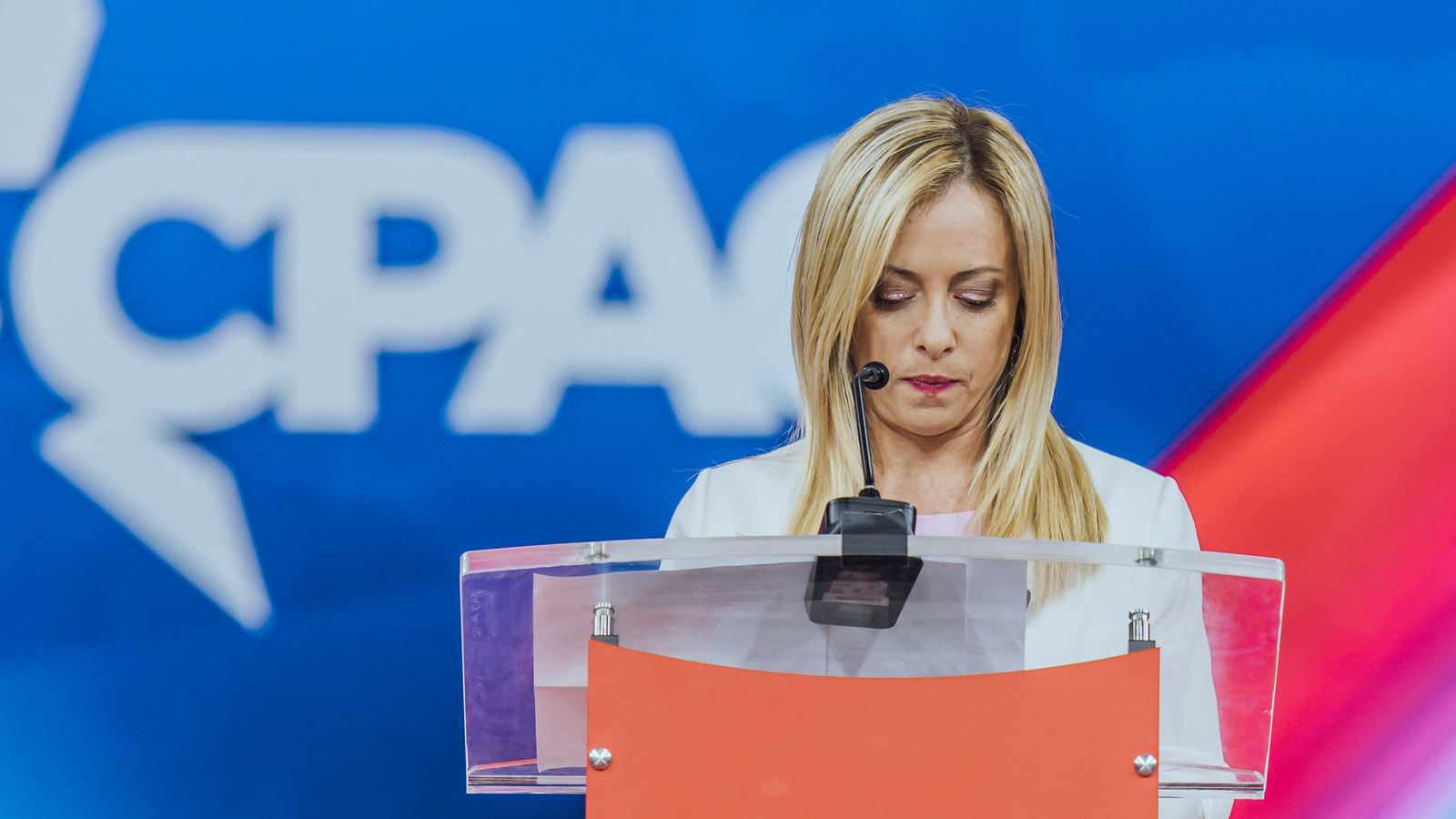Nobody is shocked here. Some pretend to be, but in reality, they are just yawning and feeling like they have seen this film before. Bad times are coming, democracy is at risk, today we start the resistance—those are all things that I heard yesterday, when the election results came in here in Italy, showing that the right-wing coalition led by Giorgia Meloni’s post-fascist Brothers of Italy party had won, and with a significant margin. But I have heard these things all my adult life.
The Italian republic was born out of the anti-fascist resistance during WWII, and anti-fascism has always been one of its core values. It has always been, also, a battleground, ear-splittingly loud with increasingly empty rhetoric. The right has consistently tried to weaken the republic, pushing an agenda of “national reconciliation,” insisting that it is not enough to celebrate the anti-fascist partisans—we should honour as well the defeated patriots of the Salò Republic, the Nazi puppet state set up in Northern Italy in the late stages of WWII and led by Mussolini. These, too, were Italians. All deaths are the same.
On the other hand, the center-left (since 1991, there has been no Left in Italy) has made the threat of the second coming of fascism its only political strategy. Meloni polling first in this election was a fascist threat, just as fascism was the brief political dominance of Salvini’s League party some years ago, and before that, when I was still in school, fascism was coming in the ludicrous disguise of Berlusconi’s Bunga Bunga parties. It’s like the story of the boy who cried wolf, so excuse me if I don’t believe the wolf has finally come this time.
The foreign press, however, seems to think so. “The Return of Fascism in Italy”, said The Atlantic a couple of days ago (although today they seem to have reassessed this claim, affirming that “Giorgia Meloni’s Election Win Is Not a Vote for Fascism”). Last July, though, a New York Times opinion piece by David Broder (“The Future Is Italy, and It’s Bleak”) sparked debate about how Italian politics is perceived outside of Italy.
“They’ll try anything to stop us,” said Meloni, when asked about Broder’s piece.
The general takeaway from all this is that what we call center-right is actually far-right, to the casual foreign observer. But I think that assessment is wrong.
Yes, Brothers of Italy has in its logo the tricolour flame, symbolizing the flame issuing from Mussolini’s tomb, long the symbol of neofascist parties. Yes, Meloni herself is probably a fascist; one was reminded of this during the campaign, when an old video surfaced of a 19-year-old Meloni praising Mussolini (she’s now 45). But it is one thing to be a fascist privately, and another to govern as one.
Another thing that surfaced during this campaign is an old song from 1998 by the neofascist rock group Avrora, titled “Piccolo coatto antico in un corpo da bambina”, or “Small ancient coatto in a babe’s body”—coatto being basically a Roman slang term for “chav”. The song is very clearly about Meloni—she’s indirectly named in a punchline about her melons, i.e. her tits. At the time, she was 21, a national leader of the National Alliance youth organization, which was itself the successor party to the post-fascist MSI (Italian Social Movement). I know that history repeats itself for the second time as farce, but that’s too much even for history. I refuse to believe that the coatta antica will become the next Duce.
Giorgia Meloni (the woman) may be a fascist, but Giorgia Meloni (the politician) can easily defend herself from the charge of being one. She can say that she has always played by the rules of liberal democracy. She can say that those who accuse her of being a fascist and say they’re concerned for Italian democracy are really just people who don’t know how to lose with grace. And she’s right—even those who speak of the threat to democracy know that. Anti-fascism is so entwined within the Italian republican conscience that it has now lost all its revolutionary significance, becoming just a synonym for the rules of liberal democracy. Even Meloni knows that she must play by those rules – in private, she is free to be a fascist, but, in terms of politics, the most she’ll be able to do is govern like a conservative liberal, with some fascist symbolism sprinkled on top.
None of this is unique to Italy. The connection between conservative liberalism and the new right-wing populism (or national-populism, as I prefer to call it) is stronger than most observers think, and this is the key to understanding Meloni. She’s a coatta antica, an ancient chav, but the focus should be on the “ancient” bit. Fascism is, all things considered, a pretty recent phenomenon. Liberalism, on the other hand, has a longer history—and much of that history is definitely authoritarian. It was only when it met the organized worker’s movement that liberalism was forced to democratize itself, conceding to everybody some fundamental rights previously reserved for the upper class, like suffrage. Since 1989, that pressure has evaporated, and democratization is being slowly reversed. Meloni, just like the other political monsters we have seen emerging in recent years, is just the current face of this long reversion in Italy.
The crude reality is that there’s no fascist monster emerging out of nowhere to destroy our liberal democratic paradise. It’s actually our paradise itself that is decaying. Meloni knows this full well, and that knowledge helped her win the election, making her immune to the already-impotent strategy of demonization that was for so long the center-left’s only political weapon. In this version of the story of the boy who cried wolf, it’s the boy who’s slaughtering the sheep.






